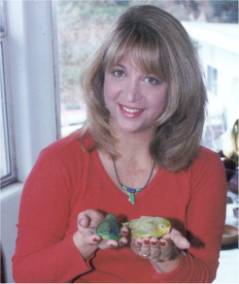Wednesday, June 27, 2012
Breeding Age?
I am wondering what is the max age for a P'let and with that how old is to old to breed any p'let?
Dear Leah:
Thank you for your email. I'm not sure what exactly you are asking. I have no idea the age of the oldest parrotlet and even if I did, it really is irrelevant when it comes to the 'average' lifespan. I believe the oldest human is 120 years old but that is not the 'average' lifespan of humans. Also, which species to which you are referring? There are 7 different species of parrotlets but I am assuming you are talking about Pacifics, which are about the only species left in the US and even most of those are not normal, 'wild-type' birds but color mutations.
As someone who has kept them for 3 decades I can tell you that wild caught Pacific parrotlets often lived 20 years or more in my aviary. Obviously, since they were wild-caught adult birds no one knew how old they were when they were imported.
Also, as with most animals that are going through the 'domestication' process, their 'average' life spans have been substantially shortened. At one time, as I said, it was not unusual for these birds to live 20 years or more. Now, a bird over the age of 10 is considered 'old'. And, of course, just like with humans, the lifespan of any one individual bird depends on how it was kept, what it was fed, how it was housed, whether it was a pet or breeder, how many birds to which it was exposed, etc. Again, like humans, someone who has a healthy lifestyle is probably going to live longer than someone who does not.
As for breeding lifespan, again it depends on the species, how they were managed, the age the birds bred, how many clutches they have produced, what they were fed and sex. Males can breed longer than females; most hens (again if properly managed) can breed 5-8 years; however, I have seen this shorted again because they were bred too early, bred to often, are color mutations or did not receive proper husbandry and management. Males can produce for much longer and I often had males producing into their teens. However, since their lifespans have been shortened, I would say that that timeline has been reduced as well.
Hope this answers your questions.
Sincerely yours,
Sandee L. Molenda, C.A.S.
Secretary, International Parrotlet Society
Subscribe to:
Post Comments (Atom)




No comments:
Post a Comment
Note: Only a member of this blog may post a comment.